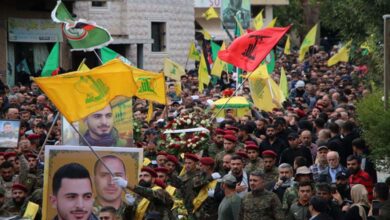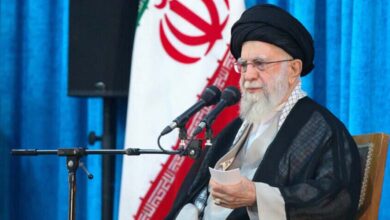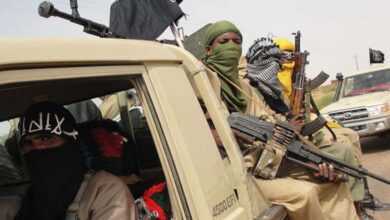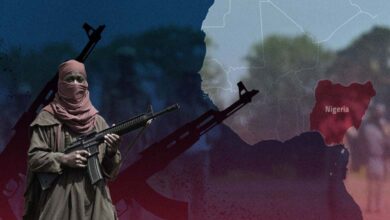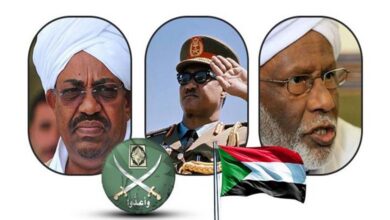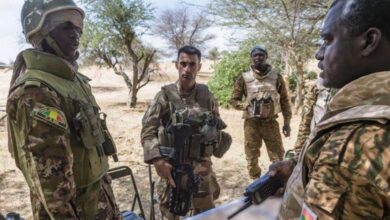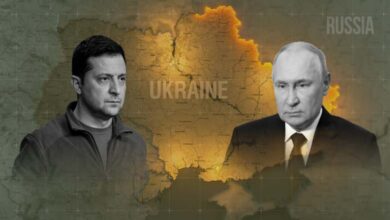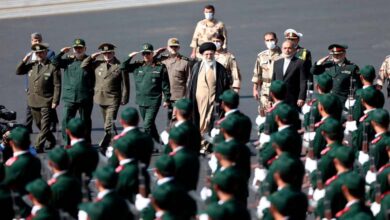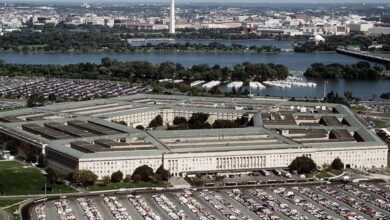Largest Emirati Aid Ship Heads to Gaza to Save Thousands from Hunger
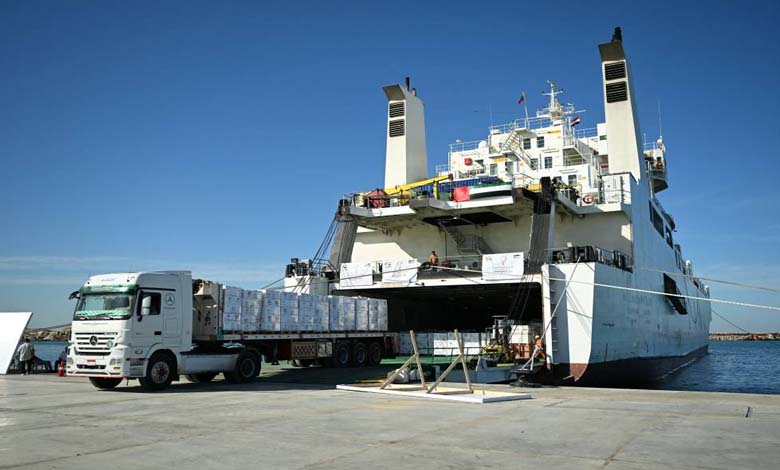
As the Israeli assault on Gaza continues and the blockade intensifies—affecting every aspect of daily life through a systematic starvation policy—the United Arab Emirates is escalating its humanitarian efforts. Through sustained and impactful initiatives, Abu Dhabi reaffirms its moral and humanitarian principles, independent of any political agenda.
-
“The Gallant Knight 3″… The UAE sends a ship loaded with 4000 tons of aid to support Palestinians
-
The United Arab Emirates launches ‘Gallant Knight 3′ Operation to aid Gaza
The latest initiative involves the departure of the eighth vessel under the “Gallant Knight 3” operation. The ship, named “Khalifa 8,” departed from Khalifa Port (KIZAD) in Abu Dhabi and is en route to Egypt’s Al-Arish Port, in preparation for the delivery of its cargo into Gaza via the Rafah land crossing, in full coordination with Egyptian authorities and relevant actors on the ground.
The cargo includes 4,372 tons of food supplies, 1,433 tons of shelter materials, 860 tons of medical supplies, and 501 tons of hygiene products. This brings the total volume of Emirati aid delivered to Gaza to 77,266 tons.
-
‘The Gallant Knight’: Humanitarian Initiatives Reach Gaza
-
Gallant Knight 2 : UAE offers a model of support
Abu Dhabi is also leveraging its diplomatic channels with Tel Aviv to facilitate aid delivery and ease associated logistical challenges. This effort is part of a broader Emirati strategy to underscore its humanitarian commitment to the region, despite the complex political landscape and ongoing conflict.
Beyond emergency aid, the UAE has initiated long-term strategic projects targeting the structural crises in Gaza—chief among them, the water crisis. Last week, the UAE announced a major project to pump desalinated water from Egypt to southern Gaza via a 6.7-kilometer pipeline. This pipeline, supported by a UAE-funded desalination plant on the Egyptian side, is expected to supply around 600,000 people with 15 liters of potable water per person daily, particularly in densely populated areas between Khan Younis and Rafah. UN and local reports confirm that over 80% of Gaza’s water infrastructure has been partially or completely destroyed by Israeli attacks.
-
Inspiring Gesture… The UAE Restores the Joy of Ramadan in Gaza
-
Ceasefire in Gaza: A UAE Roadmap towards “Sustainable Peace”
In the medical domain, the UAE has launched one of the largest evacuation and treatment operations for wounded Palestinians. Since the war began, 794 patients and 850 accompanying persons from Gaza have been received in Emirati hospitals. Treatment for 2,000 critical cases, including cancer patients, was also approved by President Sheikh Mohamed bin Zayed Al Nahyan.
On the ground, the UAE established a field hospital in Gaza that has treated thousands of patients, along with a floating hospital with 100 beds, equipped with surgery units, ICUs, and modern laboratories. This effort is coordinated with both Palestinian and international medical teams.
-
From the Security Council: UN Praises UAE’s Role in Evacuating Gaza Patients
-
Continuous Humanitarian Initiatives: The UAE Strengthens International Cooperation to Support Gaza
Six seawater desalination plants have been installed in Rafah, capable of producing 1.2 million gallons of water per day. Additionally, traditional wells were dug in displacement zones to counter the water shortage caused by repeated Israeli strikes on civilian infrastructure.
To combat hunger, five automated bakeries have been established, each capable of producing up to 15,000 loaves per hour, supplying daily bread to tens of thousands of families. A large-scale community kitchen project provides over 1.5 million hot meals, and local food banks receive raw material support to deliver more than 50,000 meals per day to displaced individuals.
-
UAE’s Support for Gaza: Record Efforts and Humanitarian Leadership
-
Caravan of Hope… UAE Aid reaches Gaza for the first time since Rafah crossing closure
A multimodal humanitarian corridor has also been set up: 8 maritime cargo ships, 1,271 land trucks, 414 air cargo flights, and over 100 direct airdrops into Gaza. This comprehensive effort aims to bypass the blockade and reach those in most desperate need.
Humanitarian sources confirm that UAE coordination with Israel, via active diplomatic channels, has helped facilitate aid convoys and overcome logistical obstacles that hinder other international organizations.
-
Fatah Leader Reveals Details of UAE’s Major Humanitarian Efforts Since October 7
-
UAE Writes Historic Epic in Supporting the Palestinian People as Eid Approaches
Emirati officials emphasize that these efforts are not driven by political or media motives, but by a deeply rooted national ethos of non-discriminatory humanitarian assistance. Sharif Al-Nayrab, spokesperson for “Gallant Knight 3” in Gaza, stated:
“This initiative is not just a response to an urgent need; it reflects a long-term commitment to supporting the Palestinian people, especially in critical sectors such as health, water, and food.”
International organizations such as the World Food Programme and the World Health Organization have praised the UAE’s role, recognizing it as one of the few capable actors delivering aid at such a scale under current restrictions.
-
Zayed Humanitarian Work Day and the Honor of Humanitarian Giving and Human Brotherhood Values
-
Palestinian Analyst: UAE Has Cemented All Humanitarian Efforts to Support Palestinian People
In a protracted conflict and humanitarian crisis, the UAE continues to provide a pragmatic model of solidarity. Far beyond aid convoys, it proposes long-term solutions to Gaza’s crises—proving that even amid devastation, determined humanitarian action can make a lasting difference.


